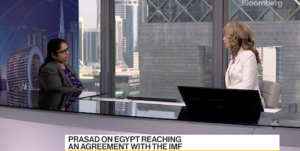Click here to access the original article that appeared in the Times of Oman on Jan 26, 2015.
Oman can withstand oil price slide
Oman and its fellow GCC countries can withstand the huge dip in oil prices, say economists who are backed up by new research by the International Monetary Fund (IMF).
“The Oman government’s prudent estimates in the past will help to withstand the present market volatility due to the dip in oil prices. The cautious steps taken in the past budgets have guaranteed enough resources and the steps adopted for the diversification of the economy will help to withstand the oil price dip crisis,” said Fabio Scacciavillani, chief economist at Oman Investment Fund.
In its latest economic outlook, IMF said that oil export losses in 2015 are expected to reach about $300 billion or 21 per cent of GDP in the GCC.
The IMF outlook says that the countries that will be most affected are Kuwait, Qatar, Iraq and Oman along with Libya, and Saudi Arabia and IMF expects growth in the GCC to be around 3.4 per cent in 2015, a downward revision of 1 percentage point relative to the October 2014 outlook.
Real GDP growth
“Even after the plunge in oil prices, the real GDP growth for the GCC is projected by the IMF at 3.4 per cent in 2015 down marginally from the 3.7 per cent growth in 2014. In my view this is the fundamental element. It underlines that the GCC countries are able to withstand a serious oil price shock without major repercussions on their economic performance. In other words the process of economic diversification has made the economies of our region more resilient than in the past,” Fabio said.
Last week, the World Bank had projected Oman’s GDP to grow 5 per cent this year, well above its 3.3 per cent average growth forecast for GCC countries.
Oil prices have declined by about 55 per cent since September 2014, and in late November the Organisation of the Petroleum Exporting Countries (Opec) decided not to cut production. Since then, markets expect oil prices to be around $57 per barrel on average in 2015 before rising gradually to $72 per barrel by 2019.
Recently, Mohammad Bin Hamad Al Rumhy, Oman’s oil and gas minister, sharply criticised Opec’s production policy, saying it was creating volatility in the market without benefiting oil producers and that his country was suffering.
The economist said that one could envisage that the downturn in the oil market will induce the authorities to give a renewed impulse to the development of the manufacturing sectors and high end-services such as IT and tourism.
Downward revision
Meanwhile, a GCC economist said that the IMF’s downward revision of both global and regional growth forecasts and the oil price decline are a call for policy action by the GCC countries.
“Oman should gradually phase out of oil and gas subsidies to reduce the budgetary burden; maintain public investment and infrastructure spending that has the potential to ‘crowd-in’ the private sector, raises labour productivity and is business oriented; develop the local currency Treasury bill and government debt and Sukuk market to finance part of the budget deficit and capital expenditures and consider introducing excises taxes on items like gasoline and tobacco, while re-igniting discussions of introducing a VAT at a low level (say 5 per cent) across the GCC,” said Nasser Saidi, president of Nasser Saidi & Associates and former chief economist at the Dubai International Financial Centre.
“The fiscal impact is severe across the GCC, particularly for Saudi, Bahrain and Oman,” added Nasser.
The IMF outlook also cut its growth forecast for oil exporters in the Caucasus and Central Asia by 0.8 percentage point to 4.9 per cent.
Comments on Oil Price Slide in Times of Oman article, Jan 26, 2015
1 February, 2015
read 3 minutes
Read Next
media page
Comments on Saudi Arabia’s economic diversification in Al Arabiya News, 8 Apr 2024
Dr. Nasser Saidi’s comments appeared in an Al Arabiya News article titled “Saudi Arabia’s economic
9 April, 2024
media page
Comments on the GCC diversification strategies in Arab News, 9 Mar 2024
Dr. Nasser Saidi’s comments appeared in an Arab News article titled “Diversification strategies paying off
10 March, 2024
TV and radio
Bloomberg Daybreak: Middle East & Africa Interview, 28 Feb 2024
Aathira Prasad joined Vonnie Quinn on 28th of February, 2024 as part of the Bloomberg
29 February, 2024




